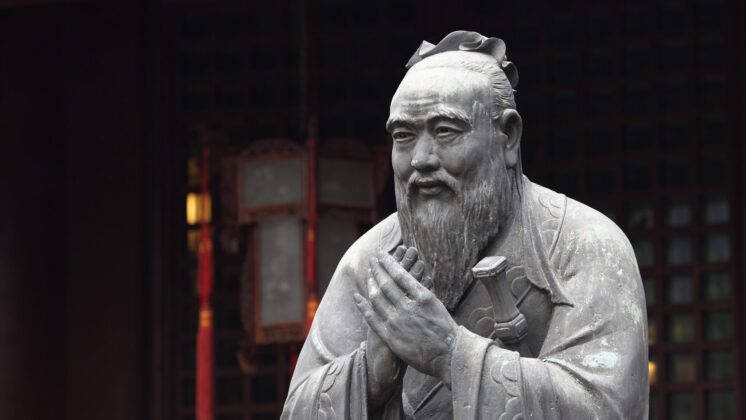A few years ago, I took part in a conference on leadership at The Aspen Institute. One of the events was a discussion based around the sayings of famous people. I caused a bit of a stir by arguing (actually, agreeing with Confucius) that the best leaders do nothing.
Of course, Confucius was being deliberately provocative. He did not mean that a good leader should never do anything. Rather, he meant that the best thing for a leader to do is create a well-structured, well-trained, and fully-functioning organization, then get out of the way and let other people do their jobs.
I agree. And it’s how I run my business.
Next Article
3 Great Debates about Leadership
Zen and the Design Thinking Mindset of Steve Jobs
The Best Leaders Support Employees
When I started out as an entrepreneur in the 1990s, I took a cue from Confucius’s leadership advice and defined my role as CEO in quite limited terms. In fact, I only set three essential functions for myself:
- Create a vision, craft a strategy, make decisions, and assume responsibility.
- Take care of all external stakeholders (customers, shareholders, etc.), by communicating, listening, and responding to their needs.
- Create a motivating culture and communicate the organization’s mission/values to employees.
These are all actions, but in many ways, they’re also rather passive actions that require a lot of soft skills.
The best way to achieve success with a company is to grow your organization—more specifically, your human resources. And the best way to grow your human resources is to get your employees to grow into leaders themselves. For that to happen, you must encourage them to develop new skills and perform beyond their abilities.
One key task for me as a new CEO was hiring. We needed talented people to begin with, but once we had them, we needed to educate them and encourage them to take on all the responsibility they wanted.
When it comes to hiring good people, regrettably, I have no secret. In fact, I don’t think there is one. It’s just trial and error. For the education part, however, we were in a lucky position. We have different categories of employees at GLOBIS, and I decided to require all our P (for “professional”) category employees to have or pursue an MBA or master’s degree. Happily, since we run a business school, that can be taken care of in house.
To get people to stretch themselves, we don’t wait for managers to determine rising talent or employee worth. Instead, we encourage employees to propose themselves for the position and pay they want. Provided the human resource committee approves, anyone can rise up the organizational ladder fast and earn high compensation. This approach inspires everyone to take on plenty of responsibility.
The Best Leaders Don’t Try to Do Everything
What, then, is left for me, the CEO, to do?
For lack of a better way to put it, the CEO ends up doing two kinds of things:
- The jobs that no one else can do
- The jobs that no one else wants to do.
Those don’t mean the same thing everywhere I go. In my VC business, for example, my work involves investor relations (IR) and managing colleagues. (Most professional venture capitalists love the thrill of finding great companies, but they’re far less keen on IR and other back-office work.) At GLOBIS University, on the other hand, my role is mostly about being a public figure and making speeches.
But as the business grew and my employees became more numerous, capable, and diverse, the number of jobs that they can’t or don’t want to do has shrunk dramatically. The scope of my responsibilities is shrinking a little more every day. Confucius would be proud.
The Best Leaders Know When to Lead
With so little left to do, do I still qualify as a leader?
I think so.
First, it’s good for a leader to not be too busy. A leader should have time to think and self-educate in order to grow, just as employees grow. Reducing my everyday work commitments has enabled me to organize influential G1 Institute conferences on Japan’s economic future and to run the KIBOW Foundation, an NGO focused on reviving Japan’s earthquake-battered northeast. These activities have a halo effect, boosting the company profile and showing that we stand for something greater.
Secondly, while a good leader may be out of the spotlight, they are never out of touch. When a real crisis strikes—whether it’s the financial crisis of 2008 or disruption due to new technology—a good leader is always ready to step out of the shadows and assume direct control, communicating the necessary message of change and transforming the business model until the crisis is past.
The best leaders, in other words, should be thought leaders all the time and action leader as needed. That’s the kind of leader I aspire to be. In light of that, I would update Confucius’s wisdom like this:
“Bad leaders spend all their time on the job, micromanaging and pursuing novelty for its own sake until they become a burden on the organization. Good leaders spend little time on the job, but everything they do has a positive effect.”
It’s worth noting that there are exceptions to this rule, or times when it’s more applicable than others. In certain fields, like IT, change is so rapid that things are in a state of permanent crisis, making it dangerous for the CEO to lead from behind. In corporate education, however, change is relatively slow.
That’s why my goal is to do as close to nothing as I can.





